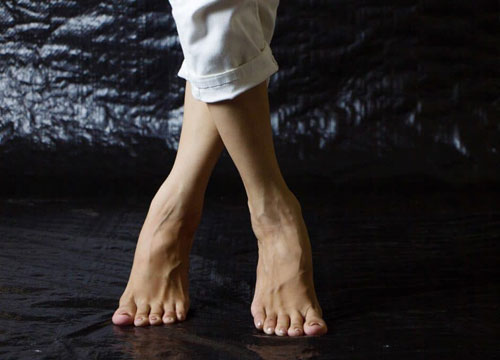Join The Nantwich Clinic Club to keep up to date with news and offers!
Sign Up
Taking care of your feet is important especially if you have already encountered problems with them in the past, such as in growing toenails, or a secondary effect of a condition like losing sensation because of diabetes. In cases like this you would need to speak to a professional like a podiatrist.
Prevention is always better than cure. We often hear these words and it’s true. If you want to look after your feet and make sure it’s healthy here are some top tips.
Stop smoking:
it can be very difficult. Do it gradually and ask for help if you need it. We all know that smoking is bad for your health it doesn’t only damage your lungs it also affects the other parts of your body especially if you already have a pre-existing condition like diabetes.
Monitor your blood pressure, cholesterol and blood sugar:
Managing them is really important not only in taking care of your feet but also for your entire body. Keeping your blood sugar at a normal level is crucial. Diabetics have a poor healing process because of irregularity with their blood sugar level. Keeping it within a healthy range will help the healing process and prevent the aggravation of the condition. So as your blood pressure and cholesterol. These three goes hand in hand.
Check your feet regularly:
If you notice any cracks, wounds, cuts, loss of sensation or inflammation seek professional help. As mentioned above, if you have diabetes then the healing process isn’t as efficient and the area can get worse at a quicker rate. If you notice any changes in your feet like the ones mentioned above consult a podiatrist.
Healthy lifestyle:
This includes having a well-balanced diet, healthy food, and keeping yourself active even at home. This is important whether you have diabetes or not. But if you do and you don’t have any idea on what to eat and do to stay active you might need a professional advice from a dietician for your food and your physician for the safest activities you can do.
Be careful in cutting your nails:
Some people tend to cut the skin around the nails resulting to an open wound. Sometimes cutting it too short can also lead to a cut under the nails. If you have diabetes then getting a wound no matter how big or small should be avoided.
Wash your feet daily:
Use soap and water to keep them clean and avoid getting an infection. Test the water first to make sure it is not too hot and be careful not to soak your feet for too long as it can make your feet moist and more prone to damage.
Wear comfortable and properly fitting foot wear:
Wearing the right footwear is important in keeping your feet healthy. If your shoes are too tight then they will constrict the feet and this can lead to hard skin, corns and even infection.
Change your socks daily:
Fresh socks reduce the likelihood of fungal infections and checking them will help spot any bleeds or discharge
Wear socks inside out:
This prevents the seams in your socks rubbing on your toes and causing damage to the skin.
Get into the habit of checking the inside of your shoes:
Before putting them on your feet by running your hand along the inside of them. You will be able to detect any tiny pieces of grit for example which could rub and cause damage. You may be able to feel this type of thing under your feet at the moment but there may come a time when you can’t – get into good habits now to help in the future.
Apply a moisturising cream to your feet every day:
This will help your feet to stay soft and the skin to be healthy. If you’re not sure which emollient cream to use contact your podiatrist today. Avoid putting cream or powder in between your toes as it can cause problems.
Avoid using corn plasters or blades as it can cause more damage to your feet:
Removal of corns needs professional help. Although pumice or an Emery board can help reduce the hard skin, you would still need to use it with care. It is always the best and safest option to consult a podiatrist in cases like this.
Top tips in looking for the perfect foot wear:
If you need more information call a podiatrist for an expert advice.
Whether it’s a quick question that you need to ask, or you would like to book an appointment with us, we want to hear from you. Simply click the button below to get started or contact us on 01270 627118.